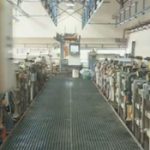Innovation continues to reshape the landscape of plastic injection molding, offering manufacturers new opportunities to improve efficiency, reduce costs, and enhance product quality. This article explores recent innovations in the industry and their impact on businesses seeking plastic injection molding services.
- Advanced Materials and Composites:
- Discuss the emergence of advanced materials and composite solutions in injection molding.
- Highlight benefits such as improved strength-to-weight ratios and enhanced thermal properties.
- Industry 4.0 and Automation:
- Explore how Industry 4.0 technologies are transforming injection molding processes.
- Examples include real-time monitoring, predictive maintenance, and robotic automation.
- 3D Printing Integration:
- Explain the integration of 3D printing technologies with traditional injection molding.
- Benefits include rapid prototyping, complex geometries, and cost-effective tooling.
- Smart Molding Technologies:
- Discuss the adoption of smart molding technologies for data-driven insights.
- Examples include cavity pressure sensors, mold temperature controllers, and mold-filling simulations.
- Sustainable Practices and Materials:
- Highlight trends towards sustainable practices in injection molding.
- Cover topics such as biodegradable polymers, recycled materials, and energy-efficient processes.
- Customization and Personalization:
- Explore the trend towards customization and personalization in injection molded products.
- Discuss the role of digital design tools, customer-centric manufacturing, and mass customization.
- Quality Assurance and Traceability:
- Explain advancements in quality assurance and traceability within injection molding.
- Topics include traceable manufacturing processes, digital quality control systems, and compliance with industry standards.
Conclusion: Innovations in plastic injection molding are driving efficiency, quality, and sustainability across industries. By embracing advanced materials, automation, 3D printing, and smart technologies, businesses can optimize their manufacturing processes and meet evolving consumer demands effectively.





